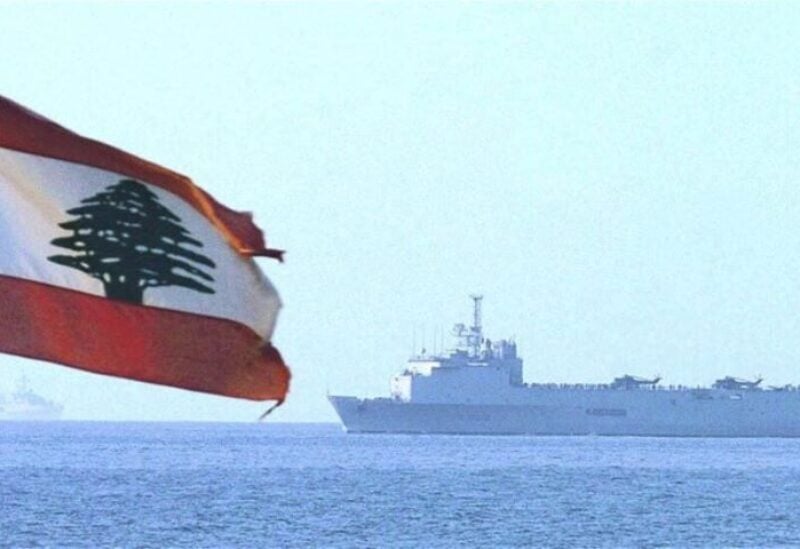
Lebanon's maritime borders
Since Lebanon and Israel signed the armistice agreement in March 1949 no violations has been recorded until 1966 when the first raid of a Palestinian organization calling itself “Heroes of Return” was carried out from Lebanese territory towards occupied Palestine, and it was completely bypassed in 1978 during the Israeli invasion.
Despite Lebanon’s adherence to this agreement, which was confirmed by the “Taif Accord” in the clause relating to the liberation of Lebanon from the Israeli occupation, today it constitutes a great tension between the various Lebanese components, and there is no unified agreement on how to confront the Israeli attacks that destroyed southern Lebanon and Beirut during the invasion of sovereignty. Today, Israel is trying to acquire its oil wealth after entrusting it to the “Halliburton” company to explore for gas, taking advantage of the cessation of negotiations between it and the Lebanese side.
The question that arises is what is the fate of the decision to amend Decree 6433, which transfers Lebanon’s maritime borders from the 23rd line to the 29th line, which President Michel Aoun did not sign, referring it to the office of the resigned Prime Minister, Hassan Diab, and remained in the drawers, waiting for the new government?
Today, with Prime Minister Najib Mikati assuming his duties, which coincided with Israel’s decision to start excavations, the question must be asked about the steps Mikati will take, and whether the amendment decision will be placed on the government’s table at its first meeting, or will the message sent to the United Nations through Ambassador Amal Mudallali be satisfied.
Sawt Beirut International interviewed Dr. Shafiq Masry, an expert in international law, who confirmed that basically the problem lies in the negotiation’s failure to obtain a basis related to what Lebanon wants, because they dealt with the points the Lebanese army recently conducted with the Israelis, and they do not have the maps, which they can rely on. In addition to the issue of not specifying a time period for these negotiations, which were suspended without setting another date.
This method is not weird with Israelis, and its goal is to prepare the ground for companies to enter the line of exploration in the territorial waters, which cannot be prevented by the Lebanese side after the suspension of negotiations and the failure to reach an agreement or certain results.
Therefore, Dr. Masry added that Lebanon should announce that the negotiations did not achieve the desired results and may not be resumed in the near future, and the issue is still disputed, and thus the character of occupation and encroachment on it remains.
Masry pointed out that the Israeli side is keen to distinguish between the occupied area – disputed area – negotiated area, as it is considered that in the case of a negotiated, this matter allows the Israeli entity to market the absence of a dispute with Lebanon, but in the case of negotiation, and the disputed area may be from its share or from a share Lebanon, and this matter cannot prevent companies from continuing their duties.
Masry said that Israel always seeks to evade the armistice agreement on the grounds of its futility, so the Lebanese authorities must adhere to it and all its effects for several reasons, the most important of which is that when demarcating the borders, it is taken into account (the jurisprudence of the International Court of Justice) in terms of the extension of the horizontal land borders of the armistice agreement at Naqoura with him Lebanon preserves its right to access its exclusive economic zone, and this is the core of the solution.
In conclusion, Lebanon is in a struggle with time in terms of preserving its oil wealth, and there are no signs of serious movement other than statements, while practical steps are absent so far.